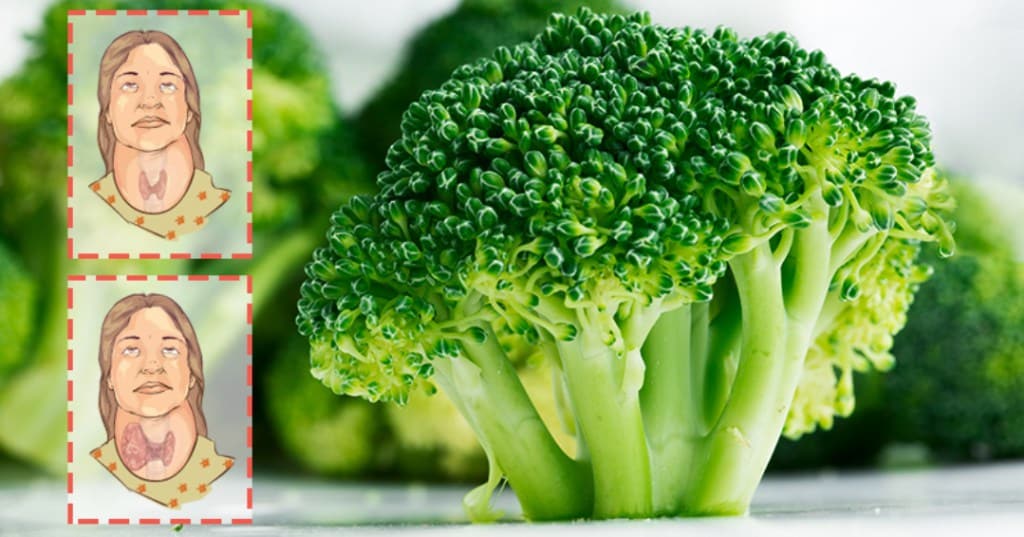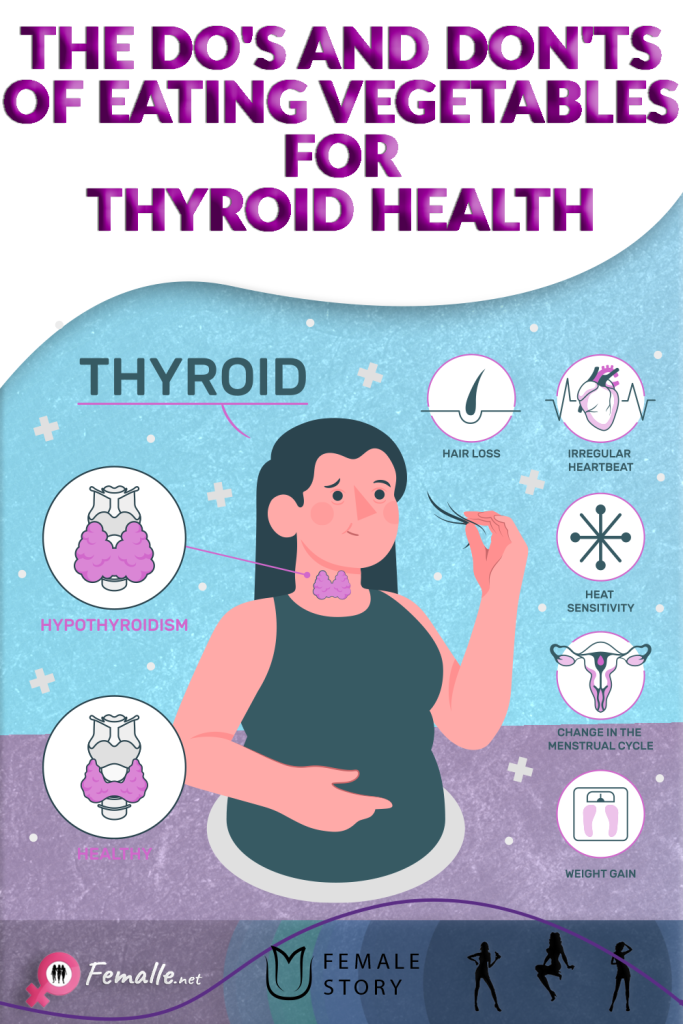The Do’s and Don’ts of Eating Vegetables for Thyroid Health
One of the most misdiagnosed conditions nowadays has to be the thyroid function. What is worse, some people miss getting the proper diagnosis and care for the condition due to the fact that the labs needed were not even ordered. Actually, when patients complain of skin, acne, fatigue, weight loss, problems with menstruation or fertility, high cholesterol or blood sugar levels, and inability to focus, they should immediately question their thyroid function.
Several things can influence people to suffer from a low functioning thyroid or hypothyroidism. They can be from environmental toxins to low nutrient status, which can impair the conversion of T4 to T3. Due to the fact that every body is different, a person’s checklists should be used to determine the cause of the low thyroid.
What is Hypothyroidism?
Hypothyroidism is a medical condition in which the thyroid gland fails to produce enough thyroid hormones, resulting in a slower metabolism. The thyroid gland, located in the neck, produces hormones that help regulate various bodily functions, including heart rate, body temperature, and metabolism. When the thyroid gland doesn’t produce enough hormones, the body’s functions slow down, leading to various symptoms and health problems.
Symptoms of Hypothyroidism
Hypothyroidism is a medical condition characterized by an underactive thyroid gland, which produces too little thyroid hormone. This can result in a variety of symptoms, including:
- Fatigue and weakness
- Unexplained weight gain
- Cold intolerance
- Dry skin and hair
- Constipation
- Muscle cramps and joint pain
- Depression or anxiety
- Irregular menstrual periods
- Memory problems
- Slow heart rate
These symptoms may vary in severity and can be mistaken for other health issues, making it important to consult with a healthcare professional for proper diagnosis and treatment.
What is hyperthyroidism?
Hyperthyroidism is a medical condition where the thyroid gland produces an excess amount of thyroid hormone, leading to symptoms such as rapid heartbeat, weight loss, and anxiety. Treatment options include medication, radioactive iodine therapy, or surgery.
Hyperthyroidism symptoms
Hyperthyroidism is a condition caused by an overactive thyroid gland, which produces too much thyroid hormone. This can lead to a variety of symptoms, including:
- Rapid or irregular heartbeat
- Unintentional weight loss
- Increased appetite
- Nervousness or anxiety
- Difficulty sleeping
- Fatigue
- Heat intolerance
- Trembling hands
- Increased sweating
- Changes in menstrual patterns
- Enlargement of the thyroid gland (goiter)
Other less common symptoms may include hair loss, muscle weakness, and vision problems. If you are experiencing any of these symptoms, it is important to see a healthcare professional for proper diagnosis and treatment.
Treatments for Hypothyroidism and Hyperthyroidism

There are several treatment options available for both hypothyroidism and hyperthyroidism. Here is a brief overview:
Treatment options for hypothyroidism:
- Synthetic thyroid hormone replacement: This involves taking a daily dose of synthetic thyroid hormone (levothyroxine) to replace the deficient hormone in the body.
- Natural desiccated thyroid: This is a medication made from dried animal thyroid gland that contains both T3 and T4 hormones.
- Lifestyle changes: A healthy diet, regular exercise, and stress management can help improve thyroid function.
Treatment options for hyperthyroidism:
- Anti-thyroid medications: These medications, such as methimazole and propylthiouracil, can help reduce the production of thyroid hormones.
- Radioactive iodine therapy: This involves taking a small amount of radioactive iodine, which is absorbed by the thyroid gland and destroys the overactive cells.
- Beta blockers: These medications can help control some of the symptoms of hyperthyroidism, such as rapid heartbeat and tremors.
- Surgery: In some cases, surgical removal of the thyroid gland (thyroidectomy) may be necessary.
In addition to hormone replacement therapy, lifestyle changes such as maintaining a healthy diet and regular exercise may also help manage the symptoms of hypothyroidism. Avoiding certain foods, such as soy and cruciferous vegetables, may also be recommended, as these foods can interfere with thyroid hormone production.
The Best Vegetables to Include in Your Diet for an Overactive or Underactive Thyroid for Thyroid Health

When it comes to managing thyroid health, including the right vegetables in your diet can make a significant difference. However, there’s a common misconception that all vegetables are beneficial for the thyroid, which isn’t entirely true.
Certain vegetables contain compounds known as goitrogens, which can interfere with iodine absorption in the thyroid gland, leading to the development of goiter or an underactive thyroid. So, it’s essential to choose the right vegetables that can have a positive impact on thyroid function.
Some of the best vegetables to include in your diet if you have an overactive or underactive thyroid include:
-
Spinach: It is a rich source of vitamin A, iron, and calcium, which are essential for thyroid function. Plus, it’s low in goitrogens, making it a great option.
-
Broccoli: It contains a high amount of fiber, vitamin C, and other essential nutrients that support thyroid function. While it’s a cruciferous vegetable and contains goitrogens, eating it in moderation can be beneficial.
-
Asparagus: It is rich in vitamins A, C, and E, and contains a small amount of goitrogens. It can also help support thyroid function by promoting detoxification in the body.
-
Sweet Potatoes: They are a great source of vitamin A, which is crucial for thyroid health. They also contain fiber, potassium, and other essential nutrients that support overall health.
-
Mushrooms: They contain selenium, which is essential for thyroid hormone production. Plus, they are low in goitrogens, making them a great option for people with thyroid issues.
However, moderate servings of these vegetables are safe to eat, and one should aim to consume at least 1-2 servings daily to prevent disease.
Tips for a Healthy Thyroid Diet
If you have an overactive or underactive thyroid, your diet can play a significant role in managing your symptoms. While some vegetables contain goitrogens that may negatively affect thyroid function, it’s important to include them in your diet in moderation. In fact, consuming certain vegetables can even prevent thyroid dysfunction.
To ensure a healthy thyroid, include nutrient-dense vegetables like kale and broccoli that contain iodine, selenium, B-vitamins, tyrosine, and omega-3 fats. Additionally, focus on eliminating foods that can trigger thyroid disorders, such as gluten, dairy, processed soy, and sugar. While you can reintroduce these foods later, be mindful of any adverse reactions.
It’s also essential to consume other foods that contain goitrogens, such as sweet potatoes, soy, mullet, yucca, and certain medications, in moderation. Studies have shown that foods with goitrogenic substances are generally safe when consumed in moderation.
To increase your intake of essential nutrients, include the following foods in your diet:
- Iodine: sea veggies like nori and wakame, seafood, and grass-fed dairy
- Selenium: Brazil nuts, seafood, and eggs
- B Vitamins: eggs, legumes, wild meat, poultry, and green leafy vegetables
- Tyrosine: avocado, poultry, and grass-fed dairy
- Omega-3 Fats: fatty fish like sardines and wild salmon, walnuts, hemp seeds, flax seeds, and chia seeds.
When cooking cruciferous vegetables, such as kale and broccoli, aim to reduce the amount of goitrogenic substances by lightly steaming or cooking them on low heat. Cooking them for too long or at high temperatures can cause them to lose water-soluble nutrients.
By following these tips, you can ensure a healthy and balanced diet that supports thyroid function.
Finally, make sure you cook the cruciferous veggies so that you can reduce the amount of the goitrogenic substances. Also, the longer you cook them, the more water soluble nutrients they lose in the process. Thus, the best option would be to steam them or cook them lightly. Also, not on a high temperature or for a long time.
Originally posted 2018-05-05 09:31:58.



